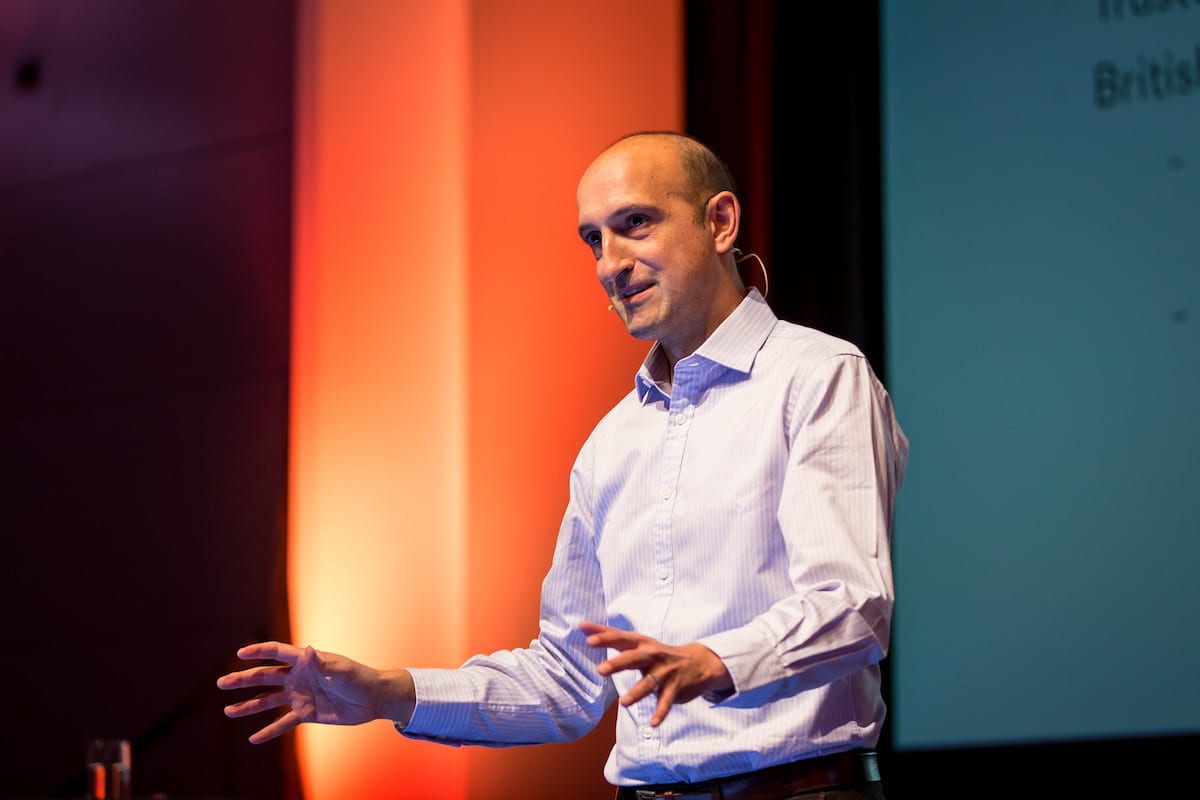400,000 people in the U.S. die every year because of avoidable medical error – that’s like two jumbo jets crashing every day, or 9/11 happening every four days. It’s the nation’s third biggest killer: clinicians killing patients.
It was a statistic that certainly grabbed the attention of the audience at Maximize Europe. Keynote speaker Matthew Syed, journalist, former Olympic table tennis champion and best-selling author of “Black Box Thinking,” highlighted some surprising truths behind the secret of success.
Compare the stats about healthcare with aviation. When aviation began, it was the riskiest way to travel, by a country mile. Today, there is only one crash per 8.3 million takeoffs among major airlines. That’s a staggering achievement.
Culture Determines Success
The difference between the two industries, according to Syed, is one of culture. In aviation, they have a growth mindset. When mistakes happen, the reaction is not to cover up or play the blame game, but to seize it as a learning opportunity to find out what went wrong and make sure it never happens again.
Early in its history, aviation introduced black boxes in aircraft to capture the data needed to analyze what caused a crash and try and ensure that particular failure never happens again.
“Aviation is agile and adaptive. It’s constantly trying to learn because it believes it doesn’t have all the answers,” Syed said the Maximize Europe event.
In contrast, senior doctors are highly talented and their innate abilities are honed by many years of training. But when doctors become consultants, they are seen as infallible, as experts who don’t make mistakes.
If something doesn’t go as well as anticipated, problems are attributed to simply being a risk of complex surgery — just one of those things.
Fixed Vs. Growth Mindset: A Contrast
Healthcare epitomizes the idea of a fixed mindset. The industry believes that the important thing to succeed is talent, it doesn’t see mistakes as a chance to learn and improve. Instead there is a blame culture, where people are scared of speaking out or admitting fault.
“The problem in healthcare is not a lack of talent,” noted Syed. “They have high IQs and good execution. The problem is that when talented people are in the wrong mindset, the intellectual and creative energy doesn’t go towards learning and adaptation, but towards creative self-justification. This is bolstered in healthcare by high blame.”
Put simply, making a mistake is a good thing to do, according to Syed. As long as you learn from that mistake and never make it again.
The problem is that when talented people are in the wrong mindset, the intellectual and creative energy doesn’t go towards learning and adaptation, but towards creative self-justification.
But for that to happen, organizations need to establish a culture which recognizes the power of curiosity and learning. While startups tend to naturally have this culture, larger, more traditional companies may have some entrenched views that do not encourage a growth mindset. But those who view culture as a bit of “HR fluff,” says Syed, will not be the business winners.
“Culture and psychology are often thought of as a bit soft and fuzzy, particularly by C-suite executives, but we need to change that because it’s a fundamental part of why organizations win.”
Small-Scale Change
It’s not just spotting the big life-threatening errors, but also spotting where things could be done better, making small “marginal gains.” He cites the example of the Great Britain Cycling Team, which won 12 medals in Rio, twice as many as the nearest team.
They didn’t win because they were better they were more talented riders (though talent certainly played a key role). They won because the head of the team looked to make small improvements or marginal gains in every component of cycling, from cycle design to nutrition.
Attracting, nurturing and keeping talent is as much a priority in field service as it is in any other part of the business. But talent alone is not enough.
Every individual tiny element was optimized, every entrenched design idea questioned. It was success by a thousand tweaks.
Attracting, nurturing and keeping talent is as much a priority in field service as it is in any other part of the business. But talent alone is not enough. A willingness to learn, curiosity, resilience and perseverance are also vital qualities for individuals and organizations.
“It’s not that talent doesn’t matter, but you need to get talent in the right place with the right culture,” says Syed.
As a final example, Syed cites the case of James Dyson, the inventor of the Dyson vacuum cleaner. It’s easy to think of him as a creative genius, who simply plucked the idea from his head and built the machine. Job done.
“What we don’t see is the 5,126 failures or prototypes which were necessary stepping stones,” says Syed.
If field service professionals want to do a Dyson or a Great Britain Cycling Team, the secret of success is to fail — but to fail well.


Share this: